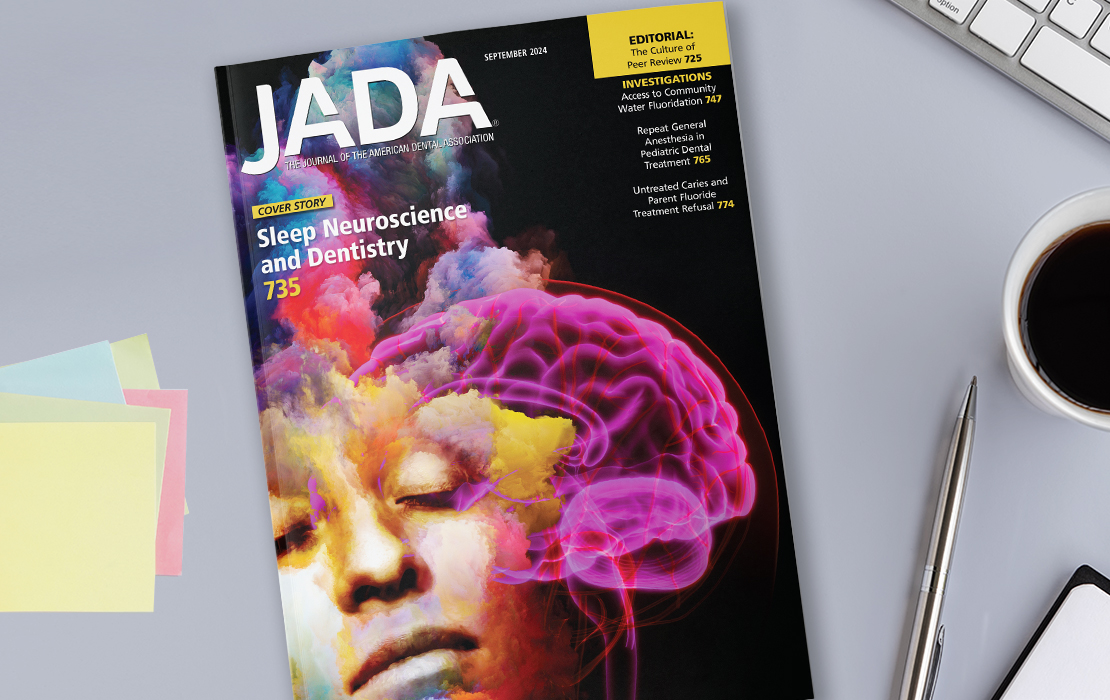September JADA examines implications of sleep neuroscience in dental medicine
Article is latest addition in Oral Science Trends series

Dentists have the potential to be the first clinician to screen patients for possible sleep disorders and refer them to the appropriate medical professionals, which can be lifesaving, according to the cover story of the September issue of The Journal of the American Dental Association.
In “The Enigma of Sleep: Implications of Sleep Neuroscience for the Dental Clinician and Patient,” the authors looked at articles from January 1990-March 2024 related to sleep medicine and neuroscience. They found robust research on sleep neuroscience and its implications in dental medicine.
“Dental management modalities, including mandibular advancement devices and planned preventive and interceptive orthodontics, may play a crucial role in management of sleep disorders,” the authors said in the article. “A good understanding of the neuroscience behind sleep disorders will help dentists facilitate optimal care for their patients.”
The article is the latest addition in JADA’s Oral Science Trends series, made up of invited reviews that explain where current biomedical and clinical sciences are leading to impactful changes in dentists’ ability to provide care and improve health.
Other articles in the September issue of JADA discuss access to community water fluoridation, artificial intelligence applications in dentistry, and the association between untreated tooth decay in children and parent refusal of fluoride treatment.
Every month, JADA articles are published online at JADA.ADA.org in addition to appearing in the print publication. ADA members can access JADA content with their ADA username and password.



